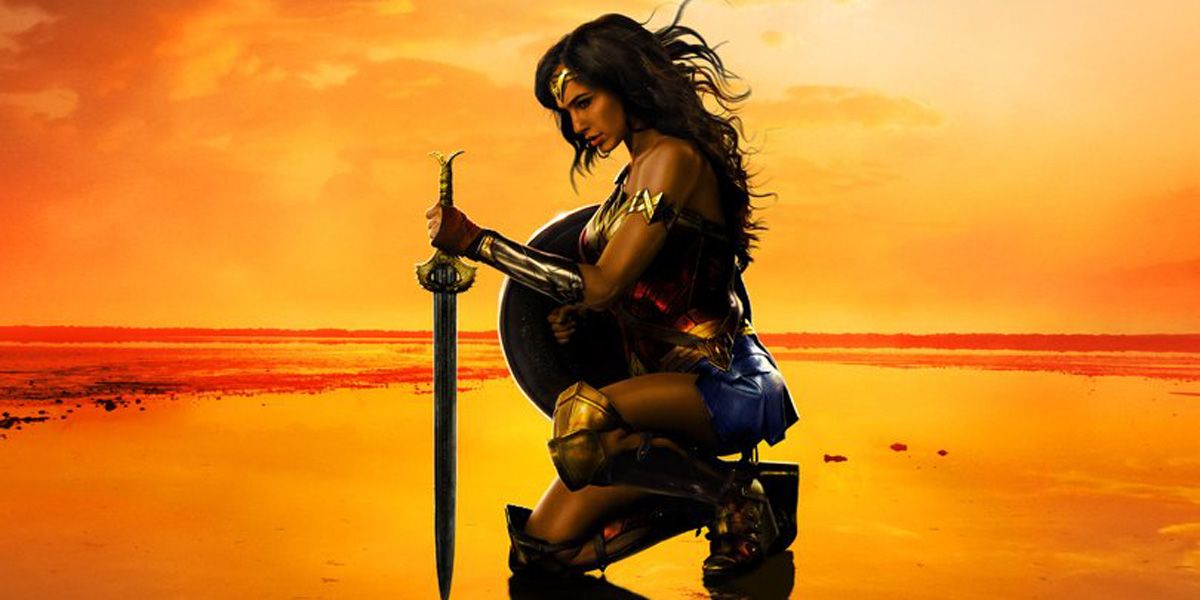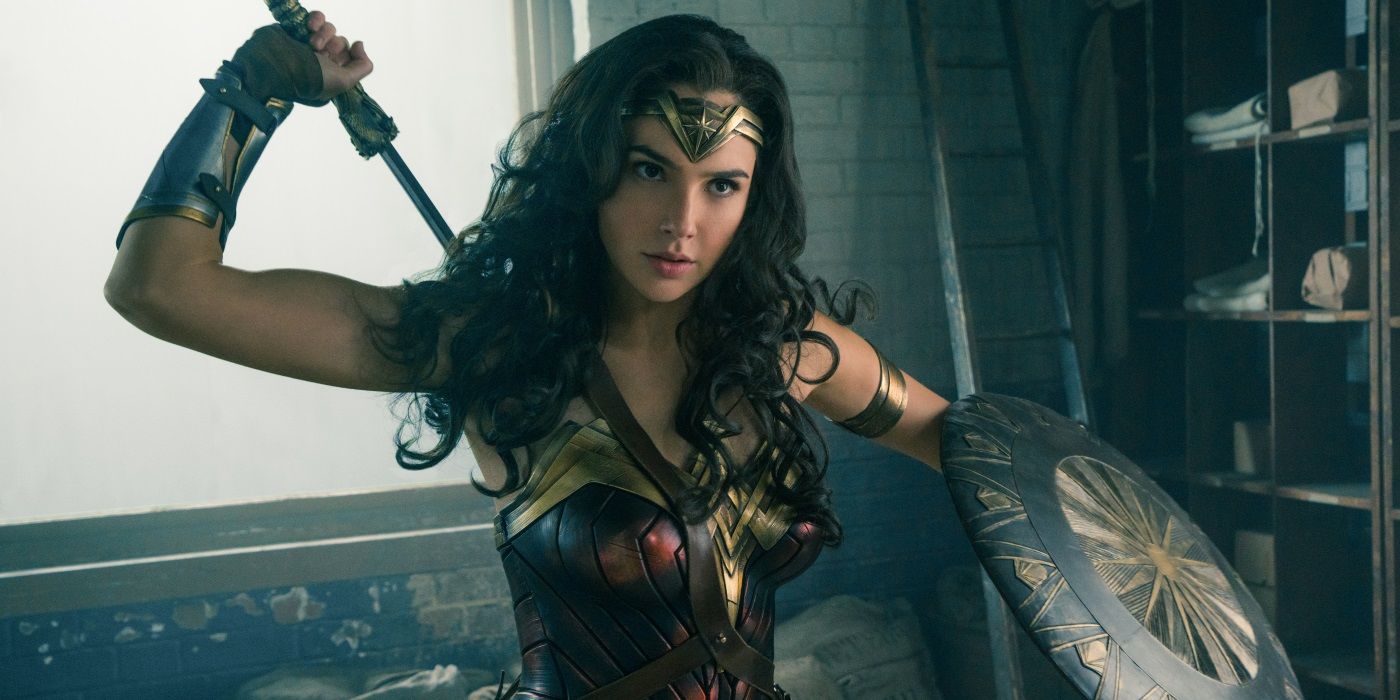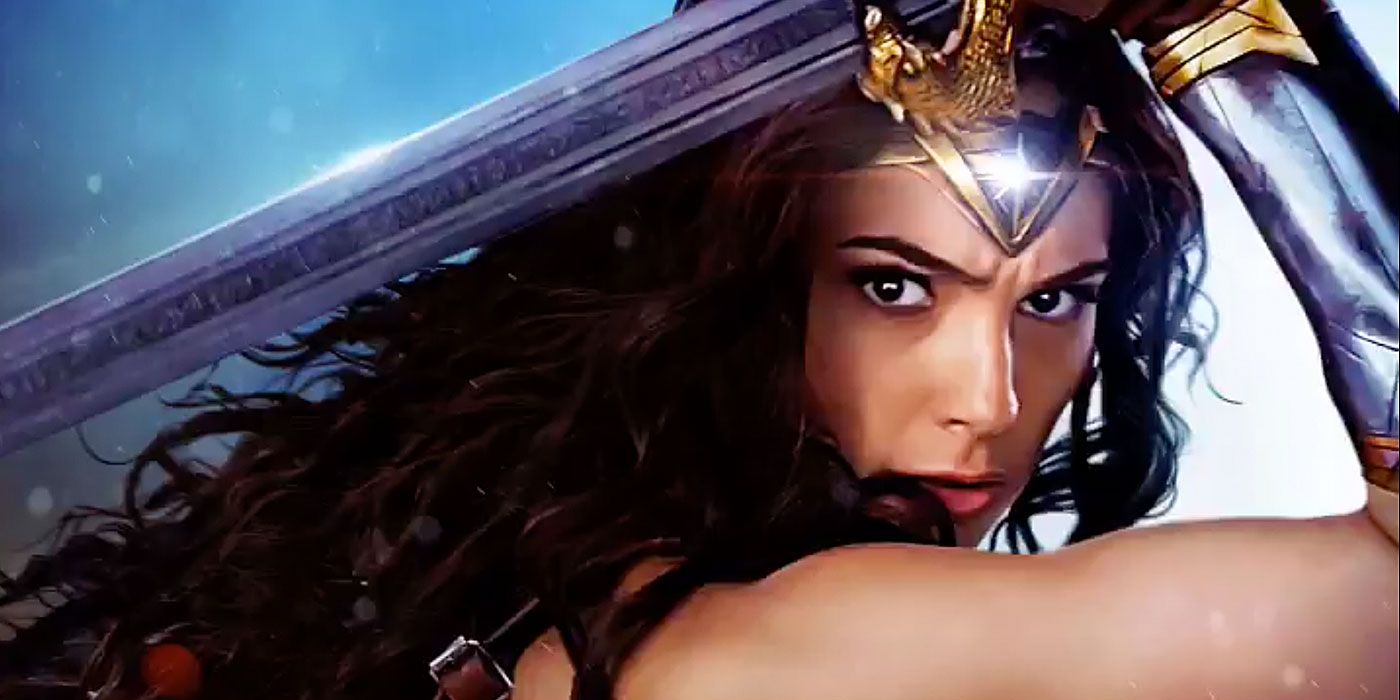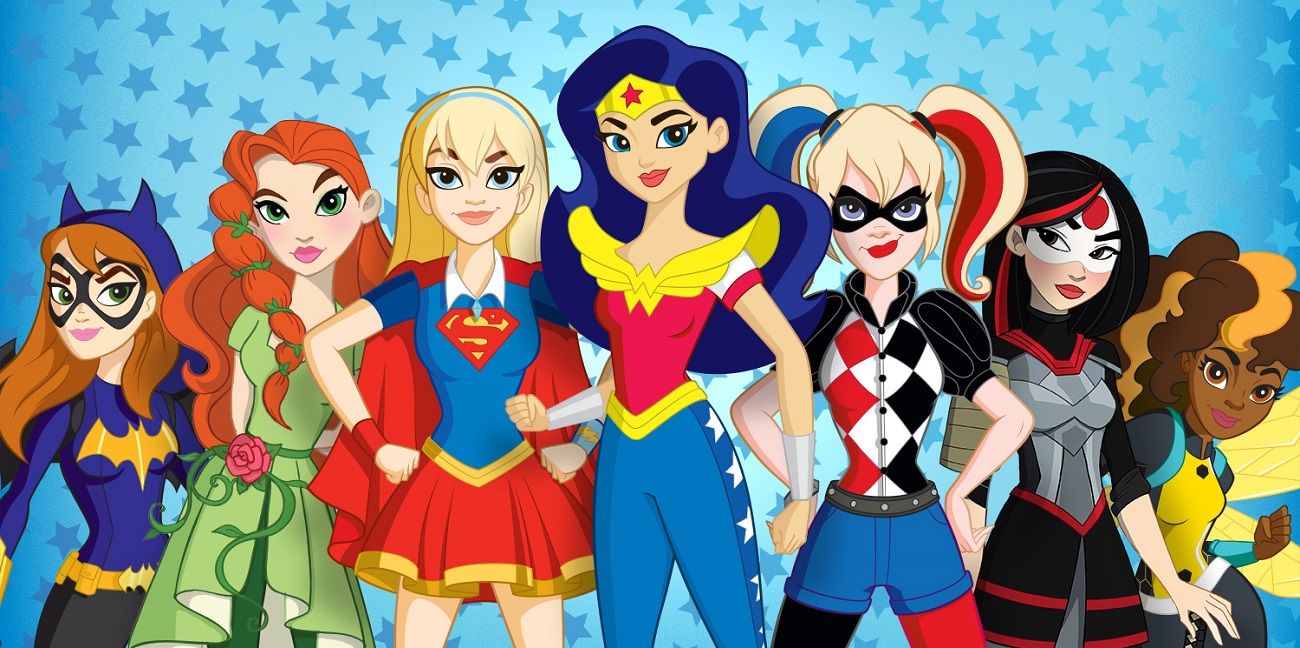Wonder Woman strode into its opening weekend burdened with multiple herculean, and largely unfair, tasks, most obviously needing to prove its own financial viability and lay the foundation for a potential franchise while delivering a much-needed critical success for the struggling DC Extended Universe. However -- and here's where the unfairness comes in -- it also had to shoulder the weight of expectations for big-budget features directed by women and for the future of female-led superhero films.
But as the DC Comics icon has proved time and again over the past 75 years, there's very little she can't accomplish.
RELATED: Wonder Woman 2's Villain Needs to Be Cheetah
Exceeding all expectations, director Patty Jenkins' Wonder Woman debuted in North America with $100.5 million, and an additional $122.5 million overseas, for a worldwide total of $223 million. While those figures my change slightly as the final box-office receipts are counted, Wonder Woman delivered the sixth-best domestic opening for a June release. It also edged out the U.S. debut of Iron Man ($98.6 million), which in 2008 launched the Marvel Cinematic Universe, to say nothing of such similar superhero origin stories as Captain America: The First Avenger ($95 million), Guardians of the Galaxy ($94.3 million), Doctor Strange ($85 million) and X-Men Origins: Wolverine ($85 million).
As impressive as Wonder Woman's North American opening is -- and make no mistake, it is impressive -- it's still only the fourth-biggest for the DC Extended Universe, behind Batman v Superman: Dawn of Justice ($166 million), Suicide Squad ($133.7 million) and Man of Steel ($117 million). More importantly, however, it's the best-reviewed DC film since 2008's The Dark Knight, with a 93 percent rating on Rotten Tomatoes and "Certified Fresh" label -- the first for a DCEU release.
That marks a turning point for the fledgling shared cinematic universe, which has struggled to gain something resembling critical acceptance and to overcome dramatic declines in second-weekend ticket sales that so often accompany bad buzz. Batman v Superman plunged 81 percent in its second Friday; Suicide Squad fell 79 percent; and Man of Steel tumbled 71.5 percent. By all indications, Wonder Woman is poised to buck that dire trend. Perhaps more importantly to the DC Extended Universe, it stands to change an unflattering narrative that's positioned Warner Bros.' superhero films as a grim-and-gritty, and less critically and commercially successful, alternative to the Marvel Cinematic Universe.
RELATED: What DC Needs to Learn From Wonder Woman's Success
What's more -- and this shouldn't be lost in the avalanche of numeric comparisons to other superhero films -- Wonder Woman scored the largest-ever opening for a feature directed by a woman, easily unseating Sam Taylor-Johnson's 2015 erotic drama Fifty Shades of Grey ($85.1 million). In an industry in which women make up just 7 percent of the directors of the top 250 features, it's impossible to overstate the importance of a superhero/action film directed by a woman and starring a woman (Gal Gadot) being such a critical and commercial success: Female directors typically aren't given the same opportunities, or the same leeway, as their male counterparts, who can helm a flop and then be handed another big-budget pictures.
The Hollywood Reporter, in promoting its profile of Jenkins, reinforced that double standard by writing, "Warner Bros. is gambling $150M with a filmmaker whose only prior big-screen credit was an $8M indie." The website was (rightfully) raked over the coals for the statement, which ignores that male directors with few or only low-budget feature credits are routinely handed the keys to nine-figure tentpoles: Look no further than Marvel Studios, which has found great success with the likes of Joss Whedon (The Avengers), James Gunn (Guardians of the Galaxy) and Scott Derrickson (Doctor Strange), or Universal Pictures, which turned to Colin Trevorrow for Jurassic World.
Clearly, Wonder Woman didn't arrive into a vacuum; it had to contend with years -- decades! -- of thinking about not only about female directors but also about female superheroes. Although the character achieved her status as a global icon in no small part due to the 1970s television series starring Lynda Carter, her return to live-action has been a long, difficult journey. Development of a film began as far back as 1996, with Whedon coming on board about a decade later, before parting ways with Warner Bros. by 2007 (he's now attached to Batgirl, and helping to finish Justice League). Within that span, Warner Bros.' Catwoman and Fox's Elektra bombed critically and commercially, cementing a belief that female-led superhero movies are box-office poison (never mind that they were simply really bad films whose quality had nothing to do with the gender of the title characters).
While much has changed in the more than a decade since the release of Catwoman and Elektra, a lot still hasn't. Marvel Studios will introduce Brie Larson as the fan-favorite Captain Marvel next year in Avengers: Infinity War ahead of her planned solo outing in 2019. Yet, despite the box-office success of Scarlett Johansson's 2014 sci-fi action film Lucy, we seem no closer to a Black Widow movie than we were in 2010, when the character was introduced in Iron Man 2.
Even before the successful release of Wonder Woman, Warner Bros. was already developing the Harley Quinn-led Gotham City Sirens (a spinoff of Suicide Squad) and the Whedon-directed Batgirl; a Wonder Woman sequel, previously only discussed in vague terms, now appears all but a certainty. Again, none of that occurs in a vacuum: Gal Gadot reprises her role as the iconic heroine in the wake of global women's marches dotted with pink "pussy hats" and images of Wonder Woman, who's been embraced as a symbol by a new generation of feminists. At the same time, Supergirl, easily the second most-recognizable female superhero, had made her own impact on television, where her season finale embraced the current political climate with the title "Nevertheless, She Persisted."
RELATED: What We Want From Wonder Woman's Sequel(s)
But the key to the future of the budding Wonder Woman franchise, and female-led superhero films, has far less to do with politics than it does with economics. DC Entertainment and Warner Bros. Consumer Products long ago identified a market for their superheroines, partnering with Mattel in 2015 to launch DC Super Hero Girls -- Wonder Woman, Supergirl, Batgirl and Harley Quinn, among them -- a line of toys that's rapidly expanded to include an animated web series, prose novels, comic books, costumes and, beginning next year, an animated television series. Disney veteran Pam Lifford, who's led Warner Bros. Consumer Products since January 2016, thinks merchandise featuring DC's superheroines can rival the Disney Princess franchise, which generates $4 billion in annual sales.
There's an undeniable market for female superheroes as Wonder Woman demonstrated not only with its $223 million global haul but by its reach beyond theaters: Sales of Wonder Woman merchandise reportedly doubled on eBay in the month leading up to the film's release.
In the end, those numbers will likely be just as important (if not more so) as box-office receipts in charting the course of female-led superhero films. In the meantime, however, audiences probably shouldn't be surprised to see Warner Bros. make a Wonder Woman sequel more official, and shore up its somewhat-nebulous DCEU slate with concrete dates for Gotham City Sirens and Batgirl. Then hopefully other studios will follow suit.
In theaters nationwide, director Patty Jenkins’ Wonder Woman stars Gal Gadot as Diana, Chris Pine as Steve Trevor, Robin Wright as General Antiope, Danny Huston as General Erich Ludendorff, David Thewlis as Ares, Connie Nielsen as Queen Hippolyta, Elena Anaya as Doctor Poison and Lucy Davis as Etta Candy.




